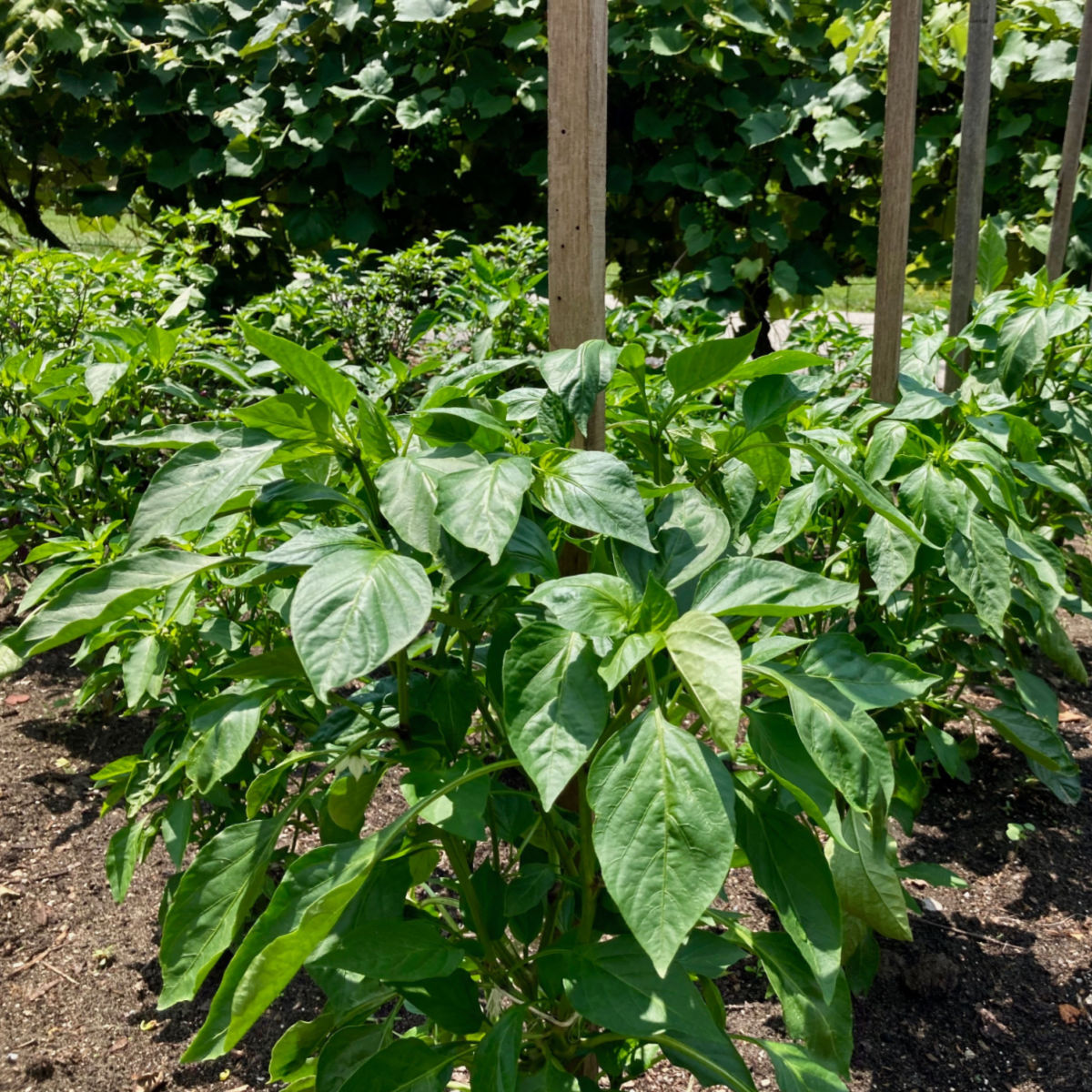Best Fertilizers for Peppers: A Comprehensive Overview to Increase Your Harvest
Best Fertilizers for Peppers: A Comprehensive Overview to Increase Your Harvest
Blog Article
Organic Vs. Synthetic Fertilizers: Which Is Best for Nurturing Healthy Pepper Plants?
In the world of supporting healthy pepper plants, the choice between artificial and organic fertilizers stands as a pivotal choice with far-ranging effects. While both alternatives goal to offer important nutrients to sustain plant development, the nuances of their influence on the dirt, plant health and wellness, and the environment trigger a dispute that echoes throughout the horticulture neighborhood. Understanding the unique advantages and potential pitfalls of each plant food kind is vital for pepper growers looking for to optimize their returns while preserving a sustainable and eco-conscious approach.
Advantages of Organic Fertilizers
Organic plant foods offer a lasting and environmentally-friendly technique to nourishing pepper plants, supplying important nutrients without the usage of synthetic chemicals. These all-natural fertilizers are obtained from natural sources such as garden compost, manure, bone meal, and algae, advertising soil wellness and biodiversity. Unlike synthetic fertilizers, natural options launch nutrients gradually, making sure a steady and balanced supply for pepper plants to flourish.
One substantial benefit of organic fertilizers is their capacity to improve soil framework and water retention. By boosting soil health and wellness, natural plant foods promote helpful microbial task, which aids in nutrient uptake by pepper plants. Furthermore, natural plant foods reduce the risk of chemical run-off, securing water resources from pollution and protecting the atmosphere.
In addition, natural fertilizers contribute to long-lasting dirt fertility by advertising the development of beneficial soil organisms. These organisms assist damage down natural issue, launching nutrients in a kind that is conveniently accessible to pepper plants. best fertilizers for peppers. By fostering a healthy soil community, organic plant foods support sustainable pepper growing methods that profit both plants and the setting
Downsides of Artificial Plant Foods
Synthetic fertilizers, in comparison to their natural counterparts, pose various disadvantages when made use of to nurture pepper plants, affecting both plant health and ecological sustainability. One significant disadvantage of artificial plant foods is their tendency to leach nutrients from the dirt swiftly.
Furthermore, the overuse of artificial plant foods can add to water air pollution. Excess fertilizers not absorbed by plants can get rid of into water bodies, bring about eutrophication, where algae flowers deplete oxygen degrees in the water, hurting aquatic life. Moreover, synthetic plant foods are usually stemmed from non-renewable resources, such as nonrenewable fuel sources, adding to carbon discharges and environmental destruction during their production.
Nutrient Absorption Contrast
Reliable nutrient absorption plays a vital role in the general wellness and growth of pepper plants. When comparing synthetic and natural plant foods in terms of nutrient absorption, natural plant foods have the advantage of offering an extra well balanced and slow-release source of nutrients (best fertilizers for peppers). Organic fertilizers consist of a variety of macro and micronutrients that are not only valuable for the plants but also promote healthy and balanced dirt microbial task, which aids in nutrient uptake. On the various other hand, artificial fertilizers typically supply a fast launch of nutrients, which can lead to leaching and Home Page overflow, leading to reduced nutrient absorption prices by the plants.
Furthermore, natural plant foods boost dirt framework and water retention capacity, allowing pepper plants to access nutrients much more effectively. This enhanced soil quality helps with root development, allowing much better nutrient absorption. Synthetic fertilizers, although initially enhancing plant development as a result of their high my explanation nutrient focus, might impede long-term nutrient absorption by degrading soil wellness with time.
Ecological Effect Considerations

On the other hand, artificial fertilizers, although often even more concentrated and quickly offered to plants, can have detrimental impacts on the environment otherwise applied appropriately (best fertilizers for peppers). Their production requires high power inputs, bring about greenhouse gas discharges and adding to climate modification. The runoff of excess artificial plant foods can contaminate water resources, leading to eutrophication and damaging aquatic environments.
Finest Plant Food Practices for Peppers
To attain this, it is essential to follow ideal plant food techniques customized to the certain requirements of pepper plants. One important method is to carry out a soil examination prior to applying any fertilizers.
An additional vital technique is to feed pepper plants at the correct time. Generally, peppers benefit from obtaining plant food at planting and afterwards once more when they begin to flower. Over-fertilizing can lead to vitamins and mineral inequalities and hurt the plants, so it is important to follow advised application prices.
Additionally, picking a balanced fertilizer with an NPK proportion that suits pepper plants' needs is essential. Organic fertilizers, such as garden compost or manure, can be exceptional choices as they launch nutrients slowly and improve dirt structure with time. Synthetic plant foods can supply a quick nutrient increase when needed. Eventually, combining artificial and organic plant foods judiciously can aid nurture healthy and balanced pepper plants while minimizing ecological impact.
Final Thought

Organic fertilizers use a sustainable and environmentally-friendly technique to beneficial pepper plants, offering necessary nutrients without the usage of synthetic chemicals. Unlike synthetic plant foods, natural alternatives release nutrients slowly, making sure a steady and balanced supply for pepper plants to grow.
Artificial fertilizers, in contrast to their organic equivalents, posture various downsides when made use of to nurture pepper plants, impacting both plant health and wellness and environmental sustainability. When contrasting artificial and natural fertilizers in terms of nutrient absorption, organic fertilizers have the advantage of supplying an extra well balanced and slow-release source of nutrients.Additionally, organic fertilizers improve soil framework and water retention capacity, permitting pepper plants to accessibility nutrients much more effectively.
Report this page